Iran says oil exports continue despite US pressure
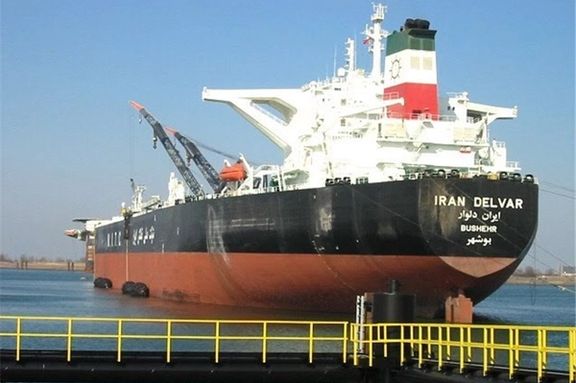
Iran’s oil minister, Mohsen Paknejad, has denied that new sanctions and enforcement efforts by the Trump administration against Iran’s energy exports have had a significant impact.

Iran’s oil minister, Mohsen Paknejad, has denied that new sanctions and enforcement efforts by the Trump administration against Iran’s energy exports have had a significant impact.
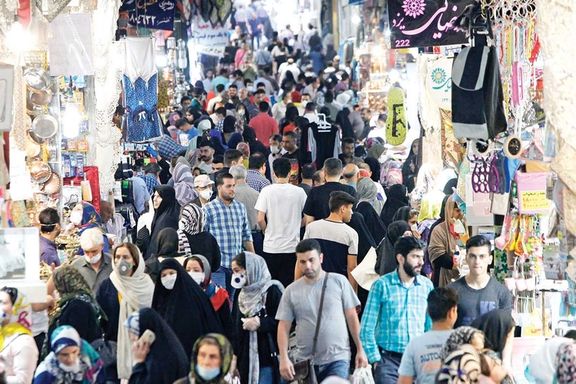
The US government has resumed nearly all Iran-related aid programs that were paused under President Donald Trump’s executive order in January, Iran International can confirm based on an obtained document and interviews with grant recipients.
The State Department had suspended funding for numerous initiatives, including Iranian human rights groups, internet freedom programs, and civil society organizations, as part of a broader review of foreign assistance under the administration’s America First policy.
The freeze, announced on January 20, was initially set for 90 days but the review process appears to have concluded in time, with all but a few of projects focusing on Iran colored green in a list of State Department “active grants” obtained by Iran International.
The State Department did not comment on the specifics of Iran-related grants when contacted by Iran International but confirmed that funding for some programs is proceeding.
"While the US Government's review of all foreign assistance is ongoing, some approved programs are continuing to advance US national interests. This includes some programs in support of the Iranian people," a State Department spokesperson said.
Multiple grantees have also confirmed to Iran International that their funding has been reinstated and that their operations will restart.
Ahmad Ahmadian, an advocate of internet freedom in Iran who leads the efforts of the California-based NGO, Holistic Resilience, in research and development of censorship circumvention technologies.
Welcoming the decision to reinstate funds to organizations like his, Ahmadian suggested that pressuring the rulers of Iran and supporting its people at the same time is not only possible but necessary if the United States wants to effect real change in the country—and beyond.
“The Trump administration’s policy is focused on increasing efficiency and avoiding the start of a new war,,” he told Iran International. “Iranian civil society remains the most promising option to achieve this goal and to change the behavior of the Iranian government.”
Ahmadian agreed that some reform toward efficiency and effectiveness might be required with the State Department grants.
“I believe new projects should demonstrate a clear return on investment, operate with greater transparency, highlight the shared values between the Iranian and American people, and focus more on tangible results,” he added.
Prior to the pause in foreign aid, Washington funded several Virtual Private Network (VPN) services that helped Iranians bypass government censorship. U.S. funding also supported projects aimed at promoting media freedom, strengthening civil society, and documenting human rights in Iran. All of these initiatives were affected by the executive order.
The halt in funding—announced on Trump’s first day in office—was widely criticized by Iranian activists who argued that the decision benefited Tehran’s theocratic rulers above all. The resumption, those affected believe, would turn the table and more.
“The Islamic Republic tried to use the temporary suspension of funds as a propaganda tool, claiming that these projects lacked usability and impact. But the reality is that many have had tangible effects on Iranian society,” one State Department grantee told Iran International, asking to remain unnamed.
“The Trump administration showed that it values Iran-related projects. I anticipate even more funding flowing into this sector. These projects are aligned with the America First policy,” the grantee added.
The State Department has not publicly commented on the status of the review or the reasons for reinstating aid. Both the pause and resumption of funding happened at a time of heightened tensions between Washington and Tehran.
President Trump has ramped up economic and diplomatic pressure on Tehran, issuing an ultimatum to Supreme Leader Ali Khamenei to agree to a deal that curtails Iran’s nuclear program or face severe consequences.
Khamenei has rejected direct talks while pressure persists and rises, asserting that Iran would not bow to American demands.
With both sides hardening their positions, concerns are growing over further escalation, particularly as the US bolsters its military presence in the Middle East and the Indian Ocean.
The most recent US intelligence assessment pointed to Tehran’s diminished influence in the region and the potential of growing discontent at home giving rise to mass protests like those seen in recent years.
The decision to reinstate grants may have had such assessments at heart.
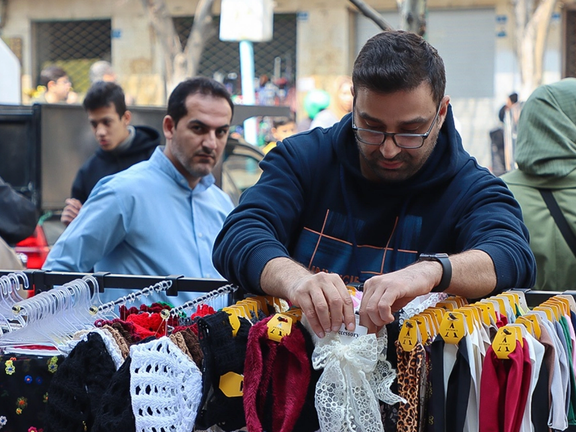
Ordinary Iranians are bearing unprecedented economic pain as their Islamic government's row with its hated enemies Israel and the United States ramps up and Tehran prioritizes military spending to shore up defense and its regional clout.
“It is a real tragedy,” said Mohamad Machine Chian, a senior researcher at the Center of Governance and Markets at Pittsburgh University on the Eye for Iran podcast. “Their quality of life has been steadily dropping for the past couple of years. But especially the past year, it has been a disaster.”
Chian told Eye for Iran that the Iranian government has continued to prioritize funding the Islamic Revolutionary Guard Corps (IRGC) and military ventures over investing in the wellbeing of its citizens.
Since President Masoud Pezeshkian took office, the Iranian currency has halved in value.
With unemployment surging above 70 percent, millions are struggling to afford basic necessities as crippling inflation and poverty grip the nation.
The sharp depreciation has driven inflation above 40 percent, with food prices soaring by as much as 100 percent in some cases. As the crisis deepens, the economic strain on ordinary Iranians is only expected to worsen in the coming months.
Machine Chian said President Pezeshkian missed numerous opportunities to address the deepening crisis and has failed to include a welfare plan in the budget to alleviate citizens' suffering.
“One such opportunity was that President Pezeshkian could have put together next year's budget in a way that convinced the Islamic Republic’s powers to at least, for a year, halt increases in military spending. That could have deescalated the situation,” said Machine Chian.
"This is during a crisis. He (Pezeshkian) should have prioritized the budget for basic necessities. But he prioritized the IRGC," said Machine Chian.
Iran implemented a 200 percent increase in military spending for the Persian year beginning this month and will aim to boost revenue through higher taxes despite a big deficit and a moribund currency besetting the economy.
It's bad...but just how bad?
The economic crisis is the worst Iran has experienced since the inception of the Islamic Republic, according to Mahdi Ghodsi, an economist at the Vienna Institute for International Economic Studies. Remarkably, Ghodsi says that the economy was better even during the eight-year war between Iran and Iraq.
“It's the worst situation, it's the worst condition, the direst condition that Iran has ever experienced,” said Ghodsi.
Ghodsi added that the reasons for this collapse are multifaceted, including Iran's militant stance in the region as a means of preserving the ruling system.
“It’s a dark comedy,” Ghodsi told Eye for Iran. “Leaders of Iran are mingling in a situation of lack of policy because their only objective is to survive. And to survive, they feel the need to initiate wars and increase tensions with other countries.”
Oil revenue: how much does it matter?
The looming uncertainty over a potential war with the United States or a new nuclear deal is also deepening the economic crisis.
Since President Trump took office, the rial has plummeted by 80,000. The administration has imposed new sanctions targeting Iran’s oil industry, including Chinese “teapot refineries” processing Iranian crude.
US Secretary Treasury Scott Bessent recently said, "If I were an Iranian, I would get all my money out the rial now."
The Iranian state relies heavily on oil exports. However, at the current rate of oil exports, the revenue generated is insufficient to cover even basic pension funds, according to Machine Chian.
Iran's oil exports totaled $54 billion in 2024, up slightly from $53 billion in 2023, with volumes averaging 1.5 million barrels per day, according to the US Energy Information Administration.
However, President Trump signed an executive order vowing to reduce Iran’s oil exports to zero. Both Ghodsi and Machine Chian say that while the world markets can endure such a move, the impact on Iran’s economy would be crushing.
Iran currently attempts to stabilize the prices of basic goods and services by injecting US dollars into the economy. But if oil exports fall to zero, the state will lack sufficient foreign currency reserves, leading to further spikes in inflation and continued depreciation of the rial.
This also means Iran would no longer be able to subsidize the price of gasoline.
If the government can't subsidize gasoline prices, then there will likely be an increase in prices this summer, both economists warn.
Ghodsi and Machine Chian said that could lead to nationwide protests similar to the November 2019 protests, which erupted after a sudden increase in fuel prices and quickly spread as a broader expression to fight the establishment. Hundreds were killed and more than 7,000 were arrested.
But according to both economists, any meaningful change in Iran’s leadership through maximum pressure cannot happen without maximum support for the Iranian people.
With the shadow of war looming or a potential nuclear deal, the rial may continue to spiral. Rising inflation and economic hardship will likely fuel further public discontent, while tensions keep diplomatic and military risks high.
You can watch the full episode of Eye for Iran on YouTube or listen on any podcast platform like Spotify, Apple, Amazon or Apple.
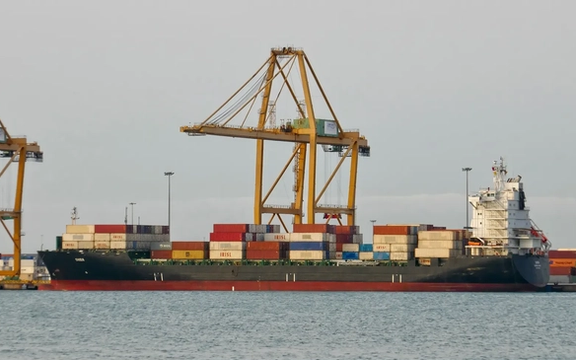
Iranian container ships are suspected of aiding Houthi attacks and transporting weapons to Syria and Russia during repeated visits to the port of Antwerp, investigative outlet Follow the Money (FTM) reported citing Western security services.
The report details how Iranian ships may have used commercial trade through Antwerp to conceal alleged illicit activities.
The vessels delivered arms, weapon components and cargo with dual civilian and military uses during stopovers in Syria and Russia en route to Belgium, the Western security sources cited by FTM were cited as saying.
In Syria, under recently ousted President Bashar al-Assad, these shipments were likely passed on to Lebanon’s Hezbollah militant group, the report added citing unnamed intelligence sources.
Six Iranian ships regularly docked in Syria while travelling between Iran and Antwerp between mid-2022 and late 2024, FTM reported, citing shipping data.
One ship, the Shiba, lingered off Yemen during multiple Houthi attacks, and made at least one unregistered “dark port” call to Syria, FTM said.
The ships were operated by Hafez Darya Arya Shipping (HDS), which is suspected to be a front for Iran’s sanctioned state shipping firm IRISL, the report said.
Belgian authorities inspected one vessel in 2024 but found no weapons, FTM reported. The EU banned the ships from its ports in late 2024 after sanctioning IRISL.
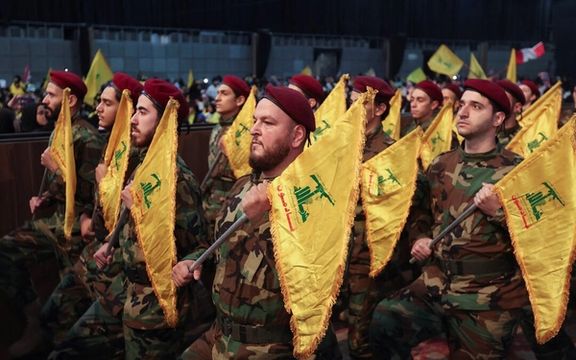
The US Treasury Department on Friday sanctioned five individuals and three companies accused of helping fund Hezbollah through a Lebanon-based sanctions evasion network allegedly backed by Iran’s Revolutionary Guards’ elite Quds Force.
“These evasion networks strengthen Iran and its proxy Hezbollah and undermine the courageous efforts of the Lebanese people to build a Lebanon for all its citizens,” said Bradley T. Smith, Acting under secretary for terrorism and financial intelligence in a statement.
The individuals and companies designated are part of a network of revenue-generating commercial enterprises owned or controlled by Hezbollah that facilitate and mask oil sales for the IRGC's Quds Force while also providing Hezbollah with crucial access to the formal financial system, according to the Treasury.
The network, it said, was overseen by senior Hezbollah finance officials including Muhammad Qasir until his death in late 2024 and his son-in-law Muhammad Qasim al-Bazzal.
The Treasury said the network used front companies to disguise oil sales and other business activity that generated millions of dollars for Hezbollah.
It added that US Department of State’s Rewards for Justice program is also offering up to $10 million for information that leads to the disruption of Hezbollah’s financial networks.
The US sanctions come on the same day Israel launched a major airstrike on southern Beirut for the first time since a November ceasefire in what it says was a response to a rocket attack from Lebanon.
The strike hit a building in Beirut’s southern suburbs in the Dahiyeh area which Israel said was used to store drones by the Iran-backed Shi’ite militant group.
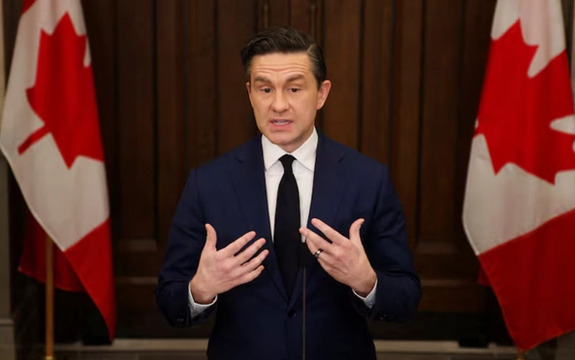
Canada’s main opposition leader Pierre Poilievre ruled out ever negotiating with Tehran, telling Iran International that the Islamic Republic cannot be trusted.
"I'm not interested in negotiating with the Islamic Republic," said Poilievre. "I don't trust them. I think they are liars."
The federal Conservative leader was on the campaign trail Thursday in Surrey, British Columbia addressing what he called “another attack by President Trump” on the Canadian economy.
His comments followed the US President’s announcement of additional tariffs on Canadian goods.
Poilievre is a frontrunner in the upcoming federal election to unseat current Prime Minister Mark Carney. The election is set to take place next month as a trade dispute sparked by Trump's tariffs has upended Canada's close alliance with the superpower to its south.
Despite similarities in their hardline stance against Iran, Poilievre and Trump appear to diverge significantly in their approaches.
Trump recently sent a letter to Iran’s Supreme Leader, Ayatollah Ali Khamenei, urging a nuclear deal. The outreach came after Washington imposed harsh new sanctions as part of the president's renewed “maximum pressure” campaign.
Trump’s letter reportedly laid out a deadline of two months to begin negotiations on the nuclear issue, with the warning that the alternative to a nuclear deal was a military attack. Iran responded by saying they are open to indirect talks but will not engage directly amid threats.
“I believe they (Iran) will promise anything you want them to get their oil and gas back on the world market,” Poilievre told Iran International. “Then they will use all the revenues from those sales to fund terrorism and attempt to obliterate our values.”
While Poilievre did not name Trump in his remarks, it was evident that he would not follow his US counterpart's Iran policy.
Poilievre dismissed the prospect of negotiating with Iran, arguing the theocracy would make promises to secure sanctions relief only to funnel the gains into funding terrorism.
“I think it's a terrible regime," said Poilievre. "It's the most dangerous sponsor of terror anywhere in the world."
The Conservative leader went on to accuse Iran’s government of exploiting Canada as a haven for their agents, threatening the lives of anyone they perceive as a critic. He vowed to deport any non-citizen or non-permanent resident with ties to the Islamic Republic.
In October 2024, Poilievre, in response to a reporter's question, said potential preemptive Israeli strikes on Iran's nuclear facilities would be a "gift to humanity."
“Right now, we are still exporting oil. There has been no disruption in our shipment routes,” Paknejad told Iranian state media.
Asked about Washington’s efforts to bring Iran’s oil exports to zero, Paknejad said such statements remain unproven. “All of this is being said for now. What is happening in practice is that we are exporting,” he said.
Asked if Iran is ready to deal with tougher sanctions enforcement by the US, Paknejad said, “Naturally, if any restrictions are imposed on Iran's oil sales, we have taken the necessary measures to respond.”
Paknejad also denied any decline in oil sales, saying Iran set a record for crude exports in the Iranian month of Dey (Dec21–Jan. 20).
Earlier this month, the US Treasury imposed sanctions on Paknejad, breaking with its usual practice of sparing senior political officials. The move was part of a broader effort to tighten enforcement on Iranian oil exports, which Washington says help fund Tehran’s military and security forces, including the Islamic Revolutionary Guard Corps (IRGC).
Paknejad’s comments on Saturday also follow a report earlier this week from Iraq’s Oil Minister Hayan Abdel-Ghani, who said that Iranian tankers intercepted by US forces in the Gulf were found to be using forged Iraqi documents.
"We received verbal inquiries about oil tankers detained by US naval forces. It turned out these tankers were Iranian and were using fake Iraqi manifests," Abdel-Ghani said on Iraqi state TV.
Iran denied the claim, saying its oil exports are conducted “within accepted trade frameworks,” and reaffirmed its position in a call between Paknejad and his Iraqi counterpart on Friday.
The dispute comes amid a broader US effort to crack down on alleged fuel smuggling and sanctions evasion by Iranian-linked networks. In December, Reuters reported that a smuggling network using forged documents was generating at least $1 billion annually for Iran and its allies in Iraq.